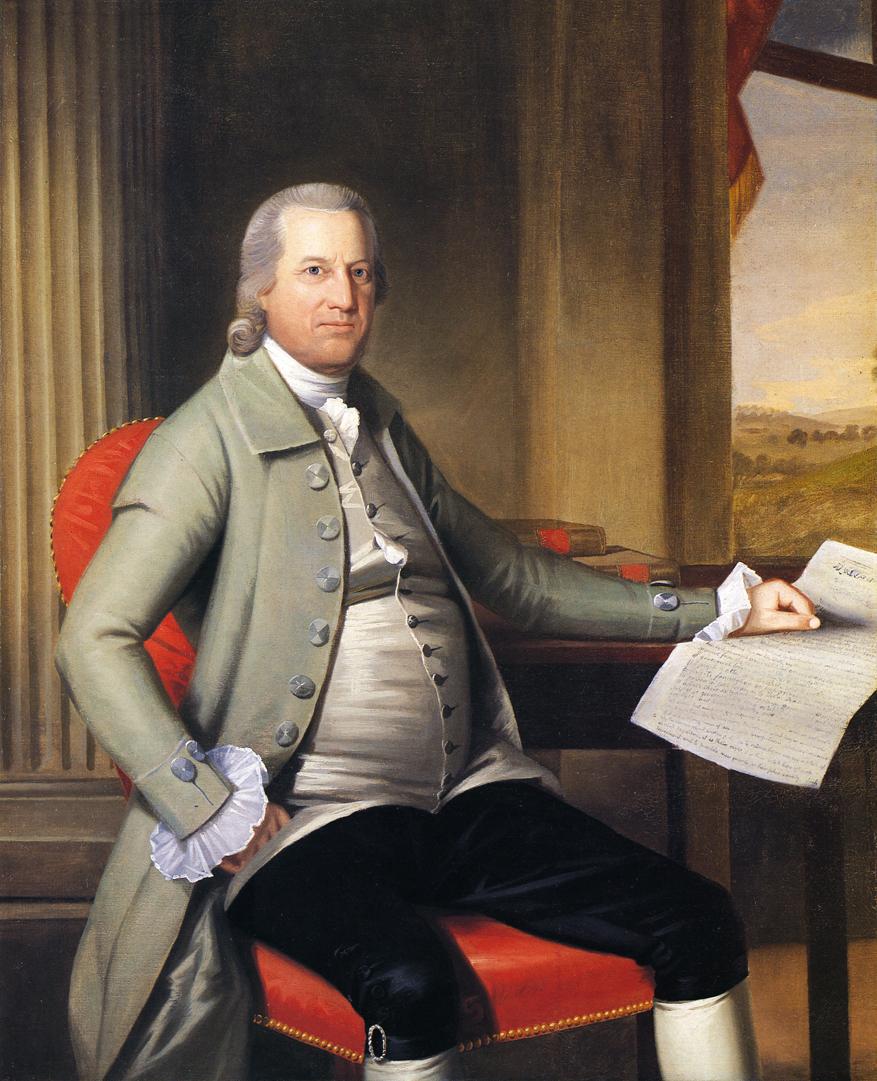Mark Cole
Great cultural strides – whether in politics, literature, theology, the arts – rarely happen in a vacuum. Rather, they are the inexorable outcome of all that has gone before. Great cultural strides are the dividends, as it were, paid out after generations of cultural capital have been put to work. And the most important preserver of cultural capital in the history of the world is, of course, the family.
A case in point. Henry Wolcott was born in England in 1578. As a Puritan dissenting Christian, he found the lack of religious freedom in that country repugnant, and in 1630, he sailed across the Atlantic to Connecticut. When the first General Assembly of Connecticut met in 1639, Henry Wolcott was among the delegates.
Henry Wolcott’s youngest son was Simon Wolcott, and Simon Wolcott’s youngest son was Roger Wolcott, who was born in Windsor, Connecticut in 1679.
Roger Wolcott’s opportunities for formal education were limited, so he became a weaver at the age of 12. As he grew older, he served in the Connecticut militia. Apparently he showed at least some flair for leadership in that role, because he was elected to the Connecticut House of Delegates, and then continued to work his way up through the political ranks, eventually becoming the colonial Governor of Connecticut.
Along the way, Roger Wolcott and his wife Sarah had fourteen children.
The second of those fourteen children was named Oliver Wolcott.
Unlike his father (or for that matter, any of his forefathers), Oliver Wolcott had the privilege of graduating from Yale.
But like his father, Oliver served in the Connecticut militia. And like his father, Oliver’s capable service led to civic responsibility, and he was elected to the Continental Congress. In the Second Continental Congress, Oliver Wolcott strongly supported the movement for independence, and in 1776, he signed the Declaration of Independence.
During the Revolution, Oliver Wolcott served on the battlefield as a brigadier general. One of his first acts as a commander was to assist in the removal of a lead statue of George III which had been erected in New York City. The toppled statue was delivered to Wolcott in Litchfield, where he and his daughters converted the likeness of the King into ammunition for the Continental Army.
Later, like his father, General Oliver Wolcott served as Governor of Connecticut – that is, the State of Connecticut, not the colony.
The story continues: Wolcott’s son, Oliver Wolcott, Jr., continued the family tradition of service to country and state by succeeding Alexander Hamilton as the second Secretary of the Treasury of the United States and, not surprisingly, as Governor of Connecticut.
Would America have become independent without the Wolcott family – and many others like them?
Fortunately, that is something we do not have to contemplate. Our job is not to consider what the world would be like without them, but to follow their example, and to preserve and enhance what they gave to us, generation after generation after generation.
For more awesome stories about the Signers –
Check out Mark’s book:
Lives, Fortunes, Sacred Honor: The Men Who Signed the Declaration of Independence
















